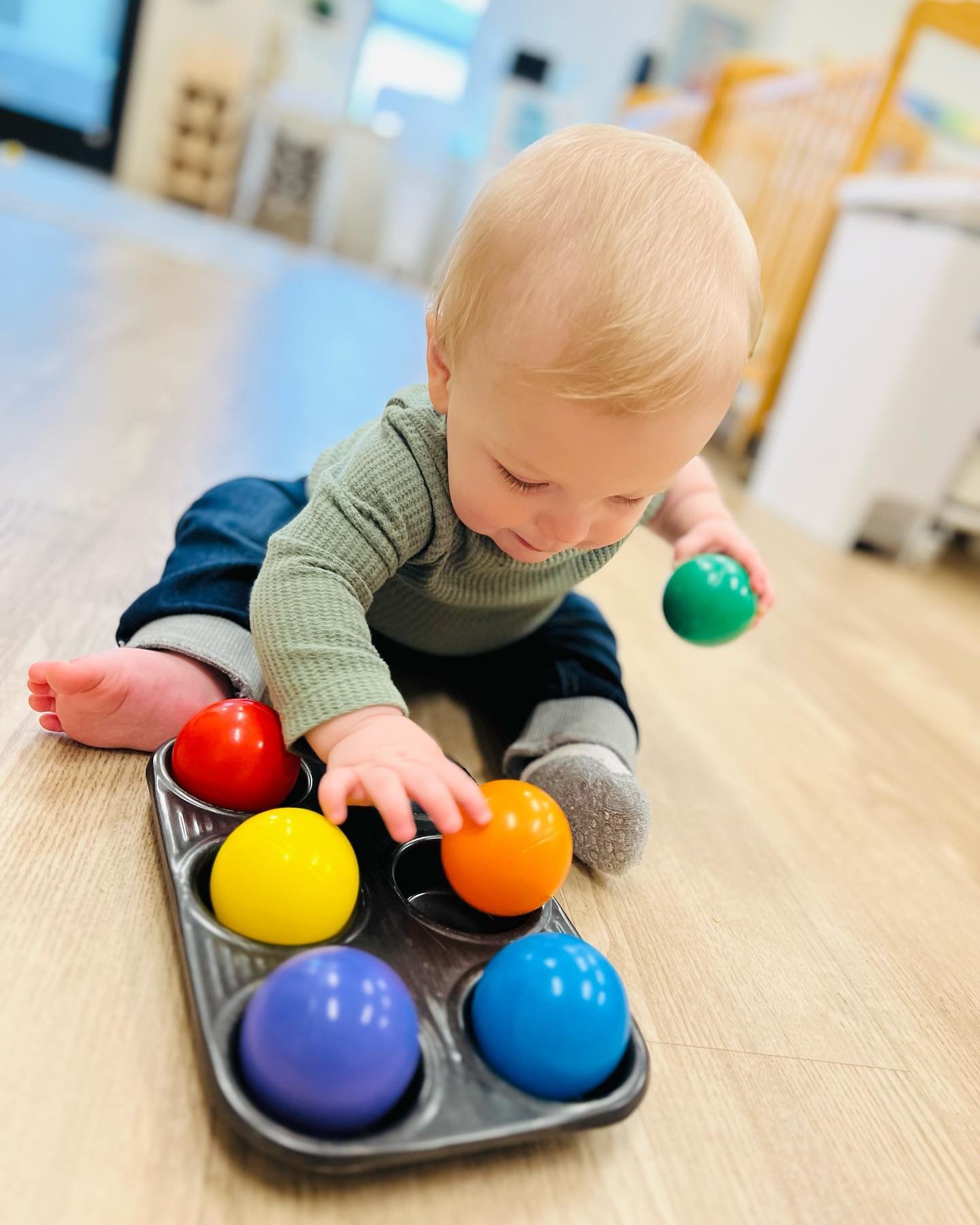All They Do is Play!: The Importance of Play in Early Childhood
If you’ve ever asked your preschool-aged child what they did at school that day, you’ve probably heard, “Played with my friends!” more often than not - even when you know they made a craft or practiced writing their name. You’ve also probably wondered why playing with their friends is the first or only thing that comes to mind after an engaging day of learning activities. Simply put, playing and interacting with others is how children learn crucial cognitive and social skills.
“Play is often talked about as if it were a relief from serious learning. But for children, play is serious learning.” - Mr. Fred Rogers
How Play Promotes Early Learning
One of the most important ways play promotes learning is how it develops a child’s Approaches to Learning skill set. This area of development is concerned with how children learn and grow and includes cognitive processes such as curiosity, initiative, persistence, and focus/attention. Play is a naturally engaging experience that allows children to investigate the world around them and in turn, develop these essential skills. A toddler who repeatedly dumps their toy basket out and places the basket on their head is learning in the same way a preschooler who likes to play restaurant is learning: both are demonstrating curiosity about the world and finding new ways to interact with their environment. The learning that comes from these experiences encourages children to get curious, make plans, and continue learning - the perfect recipe for self-motivated learners in the elementary years!
Additionally, play promotes the development of social skills in young children. Taking turns with the dolls in the dramatic play area, sharing the crayons in the art center, and figuring out how to build the tallest tower with the blocks are all examples of how children learn to share, take turns, and problem solve - as well as learn the language needed to communicate in these situations. Once again, an act that comes naturally to children provides the roadmap to their development.
Your Role in Play
Parents and caregivers alike can support children in their learning through play. Playing alongside your child and showing genuine interest through conversations about what they’re doing will encourage them to stay engaged and use toys and other materials in new and appropriate ways. Another vital benefit of joining your child in play is the comfort it provides your child to bond with you over their interests. What can be better than bonding with your child and knowing that you are helping to prepare them for their future?!
But What About Kindergarten Readiness?
Especially in today’s educational climate, many parents have concerns about their child’s readiness for kindergarten. More than ever before, there exists a pressure for children to have mastered a slew of academic skills before they even enter kindergarten; recent research shows that this simply isn’t aligned with what is developmentally appropriate for young children. In reality, many of the things a child should be able to do as they transition into kindergarten are things they encounter through play and exploration. Participating in dramatic play or sharing crayons expands their readiness for Kindergarten by teaching them how to cooperate with others and demonstrate self-control. These are the essential skills needed to create a solid foundation for learning.
Final Thoughts
At the core of the childhood experience, and at the heart of our philosophy at Balanced Family Academy, is play. Whether pretend play, physical play, or anything in-between, trust that your child is always learning. After all, as famous child psychologist Jean Piaget once stated, “Play is the work of childhood.”




